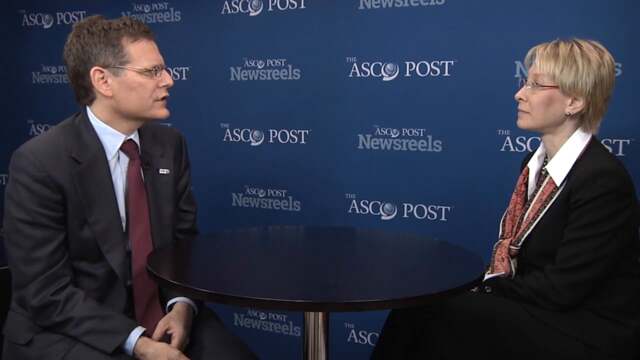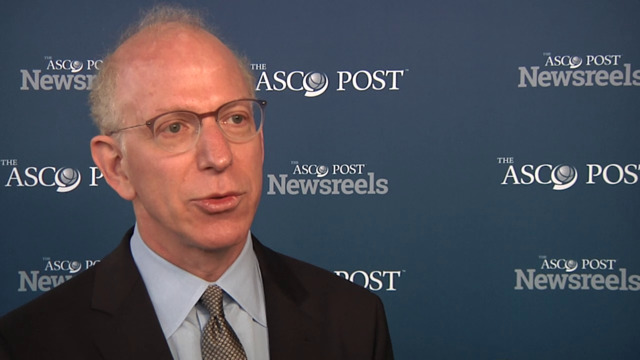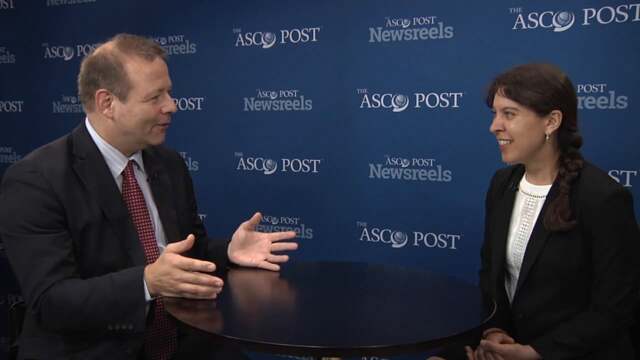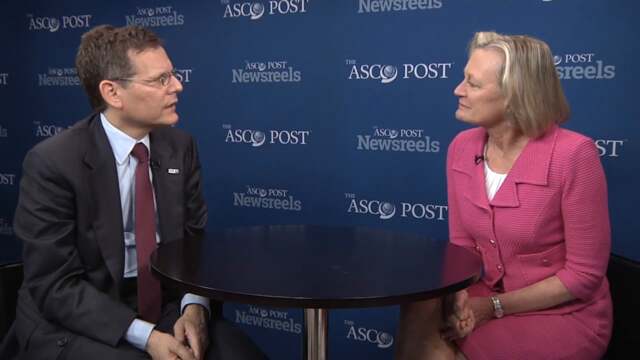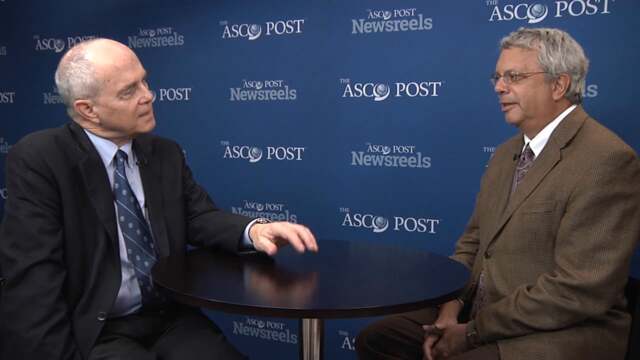Saad Usmani, MD, on Daratumumab as Monotherapy for Multiple Myeloma
2015 ASCO Annual Meeting
For a heavily pretreated multiple myeloma population, daratumumab as a monotherapy showed meaningful, durable activity with deep responses and a favorable safety profile. Saad Usmani, MD, of the Levine Cancer Institute, provides the highlights of this study on the first monoclonal antibody to show promise in multiple myeloma (Abstract LBA8512).
Maura N. Dickler, MD and Clifford A. Hudis, MD
Clifford A. Hudis, MD, and Maura N. Dickler, MD, of Memorial Sloan Kettering Cancer Center, discuss adding bevacizumab to letrozole as a first-line endocrine therapy for treatment of hormone receptor–positive advanced breast cancer (Abstract 501).
Howard M. Sandler, MD
Howard M. Sandler, MD, of Cedars-Sinai Medical Center discusses the improvement of overall survival with the use of adjuvant chemotherapy following androgen suppression and radiotherapy (Abstract LBA5002).
Chloe Evelyn Atreya, MD, PhD, and Axel Grothey, MD
Chloe Evelyn Atreya, MD, PhD, of the University of California, San Francisco, talks with Axel Grothey, MD, of the Mayo Clinic, about new data on trametinib, dabrafenib, and panitumumab in patients with the BRAF V600E mutation and vemurafenib plus irinotecan and cetuximab in BRAF-mutated metastatic colorectal cancer (Abstracts 103 and 3511).
Julie Gralow, MD and Clifford A. Hudis, MD
Julie Gralow, MD, of the University of Washington/Seattle Cancer Care Alliance, and Clifford A. Hudis, MD, of Memorial Sloan Kettering Cancer Center, discuss this important SWOG trial and why oral bisphosphonates should be made available in the United States (Abstract 503).
Charles L. Bennett, MD, PhD, MPP and James O. Armitage, MD
Charles L. Bennett, MD, PhD, MPP of the University of South Carolina College of Pharmacy, and James O. Armitage, MD, of the University of Nebraska Medical Center, discuss the emerging and future benefits of biosimilars.
